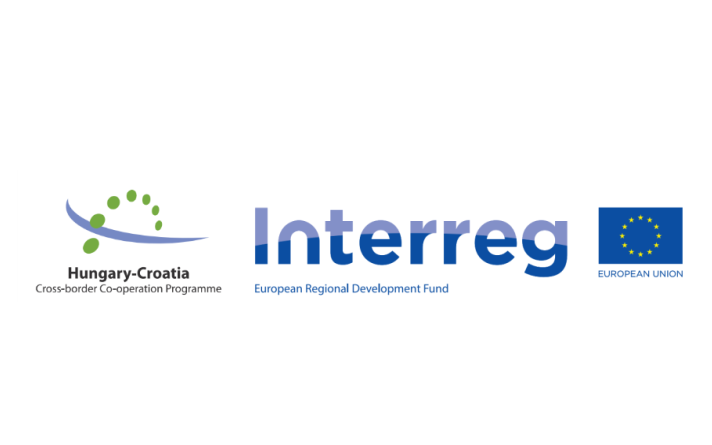Project ID
HUHR/1601/4.1.2/0008
Project title
Határon átnyúló együttműködés a szociális és szolidaritási gazdaság fejlesztéséért közös felnőttképzési program kidolgozásával és megvalósításával
Project manager, contact details
Tóth Krisztián, toth.krisztian@pte.hu
Academic supervisor, contact details
Dr. Nagy Janka Teodóra, janka@pvk.pte.hu
Total project budget
156.087,86 EUR
Total budget of UP
49.053 EUR (85% EU támogatás, 15% Hazai társfinanszírozás)
Project start date
Project end date
Coordinator
Pécsi Tudományegyetem (HU)

Partner Organisations
Open University Koprivnica (HR), Humán Innovációs Csoport Nonprofit Kft. (HU)
General description
A RE.M.I.S.E projekt célja a szociális gazdasági szektor határ menti régióiban meglévő erőforrásainak, lehetőségeinek és fejlesztési igényeinek feltárása, majd az átfogó helyzetfelmérés eredményei alapján a „Társadalmi vállalkozások menedzselése” című képzés tananyagának közös kidolgozása. A képzési terv akkreditációját követően 90 óra elméleti és 30 óra gyakorlati képzésből álló felnőttképzési program valósul meg a határ mindkét oldalán. A projektben résztvevő szakemberek számára képzéseket, workshopokat tartunk, a bevont társadalmi vállalkozások pedig szervezetfejlesztésben és coachingban is részesülnek, valamint hálózatfejlesztésben, szakmai vásárokon és tanulmányutakon vesznek részt.
A „Társadalmi vállalkozások menedzselése” képzés elősegíti, hogy olyan szakemberek álljanak rendelkezésre a határ mindkét oldalán, akik az elsajátított szakmai ismereteik és kompetenciák révén képesek lesznek szociális szövetkezetek, társadalmi vállalkozások működtetésére és menedzselésére mind a gazdasági, foglalkoztatási, szociális, közösségfejlesztési és környezeti célok elérése érdekében. A projekt hosszú távú célja a szociális gazdaság fejlesztése, a szektorban foglalkoztattak számának növelése, valamint a gazdasági-társadalmi fejlődés erősítése az együttműködő hálózat bővülésével, mind a horvát, mind a magyar célterületen.
A projekt az EU támogatásával a Magyarország-Horvátország Határon Átnyúló Együttműködési Program keretében valósul meg.
Application monitoring
Project ID
HUHR/1601/4.1.2/0008
Project title
Cross-border co-operation for the development of social and solidarity economy through the elaboration and implementationn of a joint adult education training programme
Project manager, contact details
Krisztián Tóth, toth.krisztian@pte.hu
Academic supervisor, contact details
Janka Teodóra Nagy, Dr., janka@pvk.pte.hu
Total project budget
156.087,86 EUR
Total budget of UP
49.053 EUR (85% EU contribution, 15% National contribution)
Project start date
Project end date
Coordinator
University of Pécs (HU)

Partner Organisations
Open University Koprivnica (HR), Humán Innovációs Csoport Nonprofit Kft. (HU)
General description
In the past decades in the European Union those social enterprises got into the focus of attention that combine business and social aspects in their operation, contribute to social cohesion, integration and solidarity as well as local employment.
While in 2010 in the European Union 6,5% of the economically active population worked in social economy, in Hungary 4,7% and in Croatia only 0,6% of the employees found a job in the sector. This is partly caused by the fact that managers and employees of the social enterprises lack the necessary skills, competences and special knowledge necessary for effective operation in social economy. Furthermore there are no domestic or cross-border relations and knowledge transfer between the different organizations operating in the field of social economy and they do not have international perspective either. The partnership engaged in adult education and organization development has designed the project proposal as a resolution for these problems
Their objective is to identify the resources and potentials of social economy sector in the border region, get a general idea about the operation and development needs of social enterprises and following a situation analysis to jointly develop the training curriculum for ‘Managing social enterprises’ training.
This project has been implemented with the financial assistance of the European Union within the Hungary-Croatia Interreg V-A Co-operation Programme.
Application monitoring
